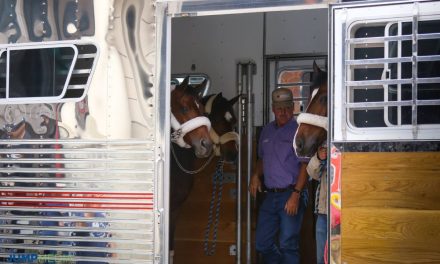No, this isn’t a duplicated news item. In early July, the Maryland Department of Agriculture issued a press release announcing that the Board of Public Works had “approved $348,384.48 in agricultural cost-share grants in 13 counties for 33 projects that will prevent soil erosion, manage nutrients and safeguard water quality in streams, rivers and the Chesapeake Bay.” And then on August 10, MDA issues a press release stating that the Board of Public Works has approved $273,772.15 in agricultural cost-share grants in 11 counties for 30 projects that will prevent soil erosion, manage nutrients and safeguard water quality in streams, rivers and the Chesapeake Bay!
So, we are assuming that this $200+k is in addition to the $300+k…
The rest of the release reads as follows:
Together, these projects will prevent 4,648.8 pounds of nitrogen, 2,373.18 pounds of phosphorus, and 242.7 tons of soil from entering the Bay and its tributaries. These projects are funded by state general obligation bonds and are not part of MDA’s general fund budget allocation. The Board is comprised of the Governor, Treasurer Nancy K. Kopp, and Comptroller Peter Franchot.
“Maryland has been a leader in helping farmers protect soil and water resources by providing conservation grants to install tried and true conservation measures as well as innovative, state-of-the-art practices,” said Governor O’Malley. “Farmers have consistently gone above and beyond to help improve the quality of our Bay, and these cost-share grants help them continue do their part to protect natural resources for future generations, preserve open space, and maintain the rich agricultural heritage of our State.”
For the past 25 years, the Maryland Agricultural Water Quality Cost-Share (MACS) Program has been providing farmers with grants to cover up to 87.5 percent of the cost to install conservation measures known as best management practices (BMPs) on their farms to prevent soil erosion, manage nutrients and safeguard water quality in streams, rivers and the Chesapeake Bay.
Since the program started in 1984, farmers have spent over $15 million of their own money to match more than $105 million in state and federal funds to install over 21,000 water quality projects or about 2.5 best management practices (BMPs) per day, every day, for 26 years. Installation of agricultural BMPs on farmland is a key feature of Maryland’s recent plan submitted to the U.S. Environmental Protection Agency to reduce nutrients.
Grassed waterways constructed to prevent gully erosion in farm fields, streamside buffers of grasses and trees planted to filter sediment and farm runoff, and animal waste management systems constructed to help farmers safely handle and store manure resources are among more than 30 BMPs currently eligible for MACS grants.
***************
Did you know you can place classifieds for FREE on equiery.com?











